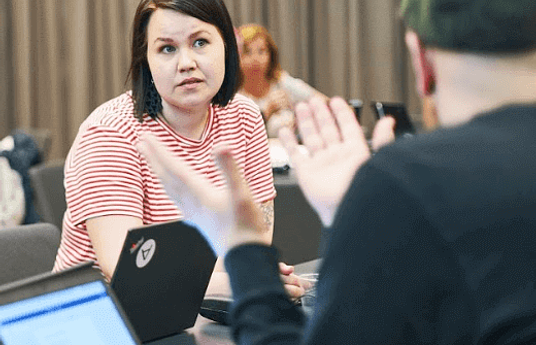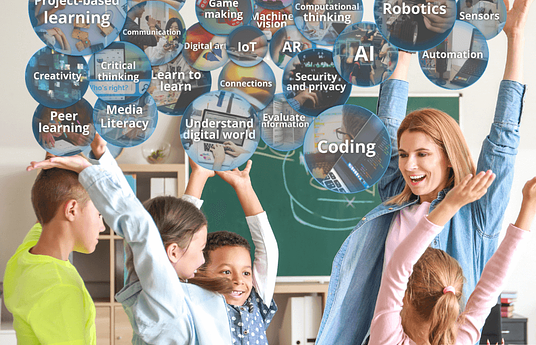High-quality, play-based early childhood education is vital for setting the foundation for children's educational success. Although Ghana offers two years of free public kindergarten with a play-based curriculum, teachers lack the training, resources and skills to deliver it effectively. As a result, 62% of children are not achieving early reading skills by primary 2 (MoE, Ghana, 2022).
Sabre Education tackles poor child learning outcomes by equipping teachers with the skills to implement Ghana’s play-based kindergarten curriculum, supporting them to transform their classrooms into child-centred, fun learning environments. Trainers from the Ghana Education Service (GES) are upskilled to deliver this year-long, face-to-face, interactive training programme for kindergarten teachers.
Our approach is built for long-term impact, with headteachers and GES officers equipped to provide ongoing coaching, monitoring and classroom support, ensuring lasting change.
And it works. In Ghana’s Eastern Region, we delivered this teacher training programme to 1,487 teachers, showing a dramatic difference: 75% of learners in Sabre Education intervention schools achieved target numeracy and literacy skills compared to 27% (numeracy) and 41% (literacy) in non-intervention schools (JMK Consulting Ltd, 2023).
To date, Sabre Education's play-based teacher training model has been implemented in 21 districts across five of Ghana’s 16 regions, reaching over 361,000 children aged four and five. Over the past two years, we’ve supported the Government in preparing for a national scale-up of this impactful approach.
In 2023, a key milestone was achieved when the government launched the Kindergarten In-Service Teacher Training (KG-INSET) Manual. Developed in partnership with Sabre Education, Right To Play, and Innovations for Poverty Action, the manual sets out practical training for KG teachers and education officials in the play-based teaching approach. With technical support from Sabre Education and partners, the government will train over 30,000 public KG teachers and relevant government officials in KG-INSET over the next four years, scaling quality play-based learning nationwide. As a result, 1.2 million KG children will benefit from quality play-based learning annually, including 600,000 new KG 1 children each year.
The KG-INSET programme is the result of years of piloting, testing, and learning, shaped by what works best in real classrooms. It has been carefully refined to create an approach that’s not just effective, but sustainable. And now, it is being rolled out nationwide by the government/Ministry of Education, to reach every government kindergarten teacher.
We’ve adapted the model over time based on what we’ve learned from running the training in different settings and at different scales. Here’s how those lessons have shaped the programme:
● Support from headteachers: We’ve added coaching and leadership training for headteachers so they can guide and support KG teachers—key to lasting quality.
● Peer learning through Professional Learning Communities (PLCs): We have developed guidance for KG-specific PLCs to help teachers from nearby schools share ideas and support each other.
● Stronger assessment and monitoring: The programme provides training for government officials to monitor classroom quality and trains teachers to move from paper-based tests to observational assessment.
● Advocacy at all levels: To keep early childhood education a priority, we’ve included advocacy training for officials and key stakeholders.
This is more than training—it is a practical, scalable approach to building a stronger foundation for young learners across Ghana.
Below are the key steps Sabre Education follows to implement this programme. For more information, please contact the team at info@sabre.education, we're happy to help.



